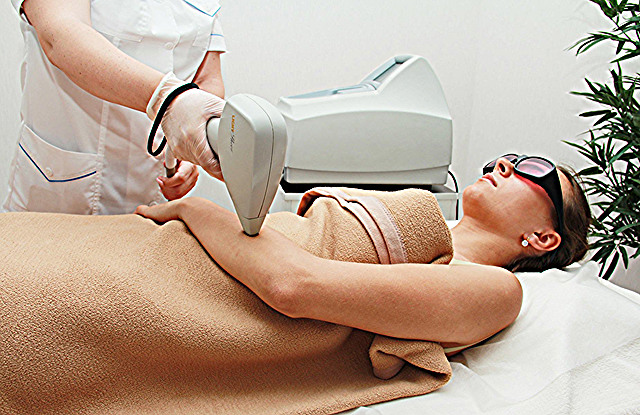Does Epilation Laser Cause Skin Cancer, Hormonal Instabilite, Or Other Complications?
This article will discuss whether Epilation Laser Avis Dermatologue treatments cause skin cancer, hormonal instabilite, or other complications. It will also give you an overview of the procedure itself. It may be the best treatment option for your specific needs. Regardless of the risks associated with Epilation Laser Avis Dermatologue treatments, the procedure is still an excellent choice for many patients. However, you should consider the precautions before undergoing this treatment. If you’d like to get the most out of your treatment, you should speak with your dermatologist about the procedure.
Epilation laser causes skin cancer

Epilation Laser Avis Dermatologue
Is Epilation Laser Avis Dermatologue cause skin cancer? The answer to this question is yes. The process of laser hair removal can cause some side effects, including crusting of the skin. While this is typically a minor problem, if left untreated, it can cause scarring or scabbing. Following your treatment, you should avoid wearing tight clothing and use a moisturizer free of chemicals. If you have skin cancer, seek the advice of a dermatologist.
The main side effect of laser treatment is pigmentation changes. People with light skin may experience darker pigmentation in the treated area. Patients with dark skin may see lighter pigmentation. However, these effects usually fade over a few days. The laser treatment can also cause scarring or other permanent skin problems. While there is a risk of pigmentation changes, they are usually not serious and don’t require medical attention. In most cases, a doctor can treat your cancer without causing any more damage.
Epilation laser causes hormonal instabilite
One of the most exciting esthetics procedures of recent years is the Epilation Laser Avis Dermatologue. This procedure removes unwanted hair by destroying the root of the hair. However, there are certain conditions that may affect the results of this treatment. In particular, hormonal changes can impact the success of this treatment. Therefore, it is crucial for women to discuss the treatment with a medical professional before starting the procedure. For example, women who are pregnant should not undergo epilation laser treatment.
First, a woman should be evaluated to determine whether she has a hormonal imbalance. Hair growth in women is often triggered by excess male hormones. In some cases, the laser treatment may cause new hair to grow, particularly in male-typical areas. In such a case, it can also result in the removal of existing hair. As a result, the hair regrowth may become even more noticeable.

Epilation Laser Avis Dermatologue
Epilation laser causes complications
There are many possible risks associated with epilation laser treatment. This method of removing unwanted hair is not a permanent solution. In addition to the potential risks of burns, it can also produce unwanted side effects such as excessive swelling and pain. For these reasons, you should consider the risks carefully and talk to your doctor or dermatologist before undergoing this procedure. Listed below are some of the risks and complications associated with epilation laser treatment.
There are risks associated with any laser treatment. In the United States, epilation lasers can cause skin cancer, but this is uncommon. However, you should still avoid epilation laser if you have a high risk of developing the disease. The treatment is safe if performed by a qualified aesthetician or dermatologist. The practitioner should properly diagnose your skin and be aware of your medical history. Rare side effects include brulures and temporary depigmentation.
Epilation laser is a dermatology treatment
The first step in the epilation laser hair removal process is to prepare the body area to be treated with a numbing gel. Depending on the type of laser used, this can take anywhere from thirty minutes to an hour. In the laser treatment room, everyone is required to wear protective eyewear. Then, the skin will be held taut while the laser delivers pulses of light. The laser’s intense heat can cause minor, temporary side effects, like skin bruising or redness. Afterwards, a cool compress will help reduce the discomfort. After the treatment, it is safe to resume normal activities.
Although most people find laser hair removal a relatively painless procedure, some people experience unwanted side effects. While there are generally no major risks associated with the treatment, some people experience skin burning, discoloration, and even a flare-up of acne. Other potential risks include scarring, infection, and scab formation. These can be minimized with the right type of laser and the appropriate settings. Patients may also experience unwanted side effects if they are allergic to the laser or shaved the area too soon.
Epilation laser is a permanent methode
The procedure involves the use of a 694-nm ruby laser with a 270-microsecond pulse duration and six-mm spot size. The laser was flashlamp-pumped, actively cooled, and steered by an articulated arm. Despite these advantages, the procedure is not without risks, including burning, discoloration, and infections. While the risks are low, some patients experience adverse effects from the treatment, including skin allergy or premature shaving of the treated area.
Before undergoing laser hair removal, patients should avoid sun exposure and tanning for at least a week prior to the procedure. The contrast between the hair and skin is the target of the laser. Patients must avoid waxing and plucking at least 24 hours prior to the appointment. It is also important to shave the treated area 24 hours before the procedure, as it will facilitate the laser’s ability to see the area well.







